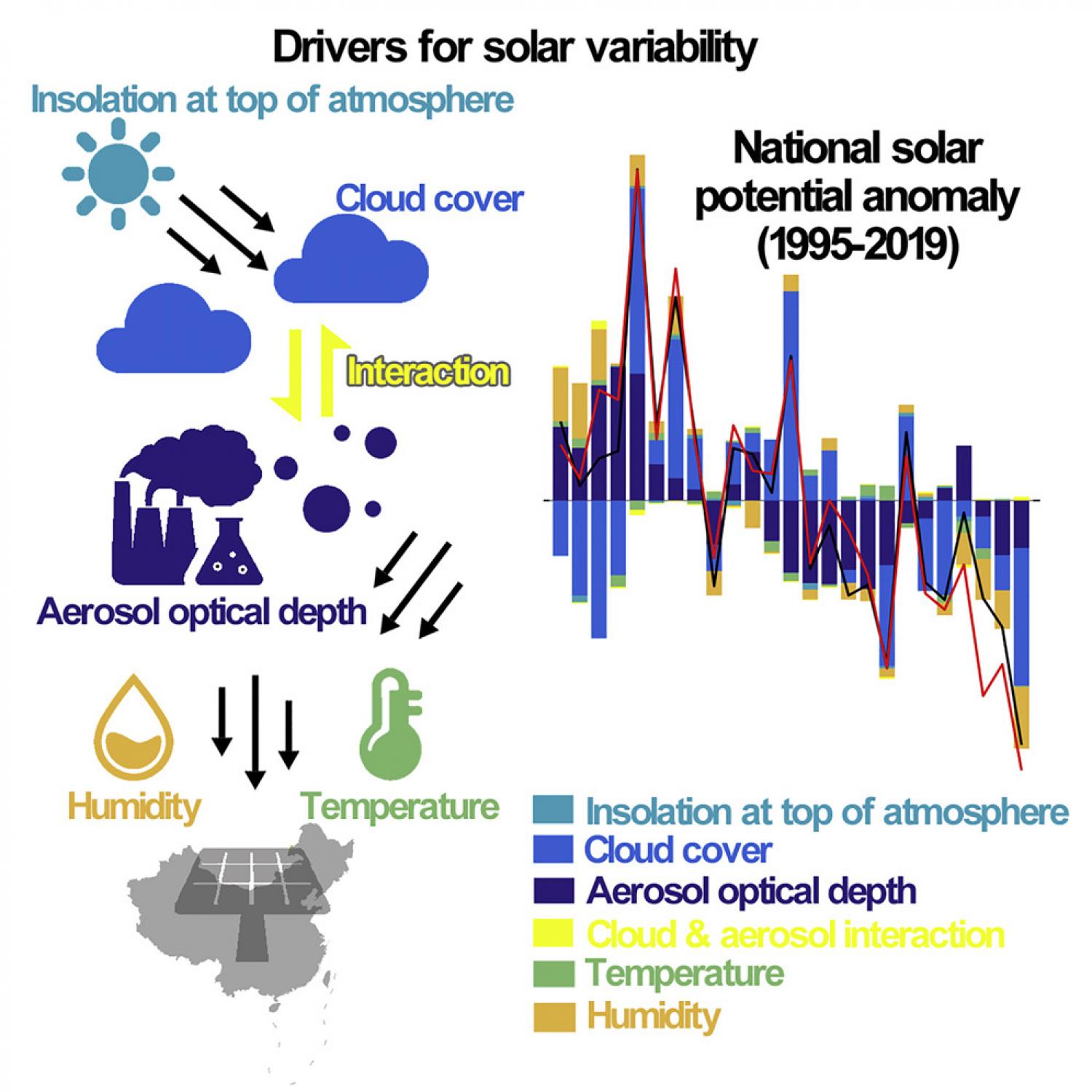
China forecasts that a 14-fold increase in photovoltaic installations is needed to meet 2060 carbon-neutrality targets. In light of the fact that air pollution impairs photovoltaic performance, pollution control could reduce the installation requirement, but research has not yet taken into account the coeval impact of unfavorable meteorological conditions, which also impair performance. Here, we employ a coupled model to determine the impact of air-pollution control policies on China's photovoltaic power output in the presence of varying meteorological conditions between 1995 and 2019. We find that the benefits of air-pollution control introduced in 2004 were only partially offset by unfavorable meteorological conditions (primarily in Central and South China) and resulted in solar-power performance improvement of 0.9%/decade from 2008 onward. Further analysis shows that solar-power output in 2020 was 1.7% higher thanks to air-pollution control and that more stringent air-quality targets could reduce the demand for photovoltaic installed capacity needed to meet the 2060 carbon-neutrality target.
